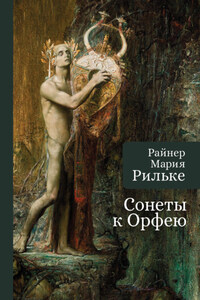“Of course the transaction is a purely private one. There is, I suppose, no chance of the truth leaking out? If so, it might be very awkward, you know.”
“None whatever. Your Excellency may rely upon me to deal with these people cautiously. Besides, they have their own reputation to consider – as well as ours.”
“And how much do you say they offer?” asked His Excellency in Italian, so that the English servants, if they were listening, should not understand.
“If you accept their conditions as they stand, they pay one hundred thousand francs – four thousand pounds sterling – into your account at the Pall Mall branch of the Credit Lyonnais on Monday next,” replied the other in the same language.
“And your share, my dear Angelo?”
“That is apart. I have arranged it.”
“And they’ll profit a million, and dress our unfortunate infantry in shoddy?”
“Possibly, but what does it really matter? A soldier’s clothes are of little concern, as long as he is well armed.”
“But the boots? – the contract is for boots as well.”
“Your Excellency forgets that the English soldiers have more than once been sent into the field in boots made of brown paper. And they were of English make! Ours are German – and we must expect the foreigner to take advantage of us.”
“Yes, but we know well the reputation of these people.”
“Of course. But from the English firm we get nothing – the English are too honest;” and the thin, sallow-faced Sicilian laughed scornfully towards his superior, Signor Camillo Morini, senator of the kingdom of Italy and Minister of War.
His Excellency, a tall, well-built, well-dressed man of sixty or so, in a suit of light grey tweed, whose hair was only just turning white, whose carefully trained moustache showed but few silver threads, and whose dark, deep-set eyes were sharp and observant, stood at the window gazing thoughtfully out upon the green level English lawn where his daughter Mary and some visitors were playing tennis.
He remained silent, his back to Angelo Borselli, the man in black who had travelled from Rome to Leicestershire to urge him to accept the bribe of four thousand pounds from the German firm of army contractors. Camillo Morini was a man with a strange, adventurous history – a man who, had he not lived entirely in the political world, would have been termed a knight of industry, a self-made man who, by his own ingenious craft and cunning, had risen to become one of Italy’s chief Ministers, and a senator of the kingdom. He entertained some scruples as regards honesty, both political and financial, yet General Angelo Borselli, the bureaucrat, who was Under-Secretary, for the past ten years had been busily engaged in squeezing all the profit possible out of the office he held.
Morini and Borselli had for years assisted each other, or, to be more truthful, Morini, who seemed to exercise a kind of animal magnetism over men, had used Borselli for his own ends, and the Under-Secretary had been the Minister’s cat’s-paw ever since the days of Victor Emmanuel when they were deputies together at Montecitorio. Upon the stormy sea of Italian politics they had sailed together, and although many times they had run before the wind towards the shoals of exposure, they had somehow always managed to escape disaster.
Borselli had, by His Excellency’s clever manoeuvring, been given the rank of general although a comparatively young man, and had been appointed Under-Secretary of War, while the pair had, in secret, reaped a golden harvest, even against Morini’s will. When deputy, and little better than a political adventurer, he had been compelled to make his politics pay; but as Minister, with the responsibility of office upon him, he had at first worked for the benefit of Italy. Yet, alas! so contaminating had been the corruption about him that he found it well-nigh impossible to act disinterestedly, and very soon all his highest resolves had been cast aside, and with Borselli ever scheming and ever prompting at his elbow, he was constrained, like his fellow-members of the Cabinet, to seek profit where he could.
In Italy, under the régime of the late King Humbert, Ministers soon became millionaires – in francs – and Camillo Morini was no exception.
A born leader of men, gifted with a marvellous tact, a keen, clear foresight, a wide knowledge of men, and a deep, wily cunning, he held the confidence of his sovereign, the late lamented king, and took care that nothing occurred to shake or to imperil it. He was a poseur, and owed his position to his ingenious methods and his plausible tongue. His highly respectable exterior was inspiring, and the veneer of elegant refinement of manner had opened to him the best social circles in Rome and Paris. He was a good linguist, and had been an advocate in Florence in the days when he made the law a stepping-stone into politics and fat emoluments.
General Angelo Borselli, the soldierly, middle-aged man of the sallow face in funereal black, always acted the part of the cringing underling, yet at heart he really hated and despised the man whom he was bound to call “His Excellency.” It was, however, Borselli’s active brain which evolved those neat schemes by which a portion of the public funds of poor strangled Italy went into their joint pockets, he who inspired the Press and kept at bay the horde of political opponents. It was General Borselli who made suggestions, who juggled so cleverly with figures, and who ruled the Ministry of War with a rod of iron.














